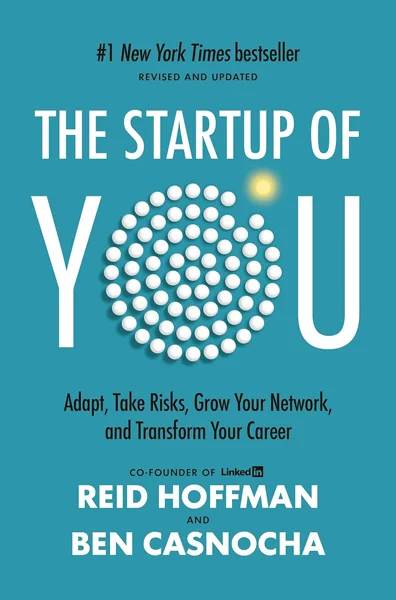These 4 tips seem trivial, but the more often we hear simple things, the deeper they sit in our memory. The creators of the book are Ben Casnocha and Reid Hoffman. The latter, by the way, is a billionaire and the creator of the social network LinkedIn.
The whole idea of the book is that you need to be like a startup: know your advantages and be ready to change.
1. It is unwise to try to identify a single dream around which our entire existence will revolve
Many entrepreneurs often say, "Follow your dreams!". But few of them say that at different stages of life, the dream and the goal may change, and that's okay.
What did you want to be when you were a kid? Personally, I wanted to become a chef, and a clear understanding of my life path began to come only at the age of 25! And I'm sure it will be adjusted at 30, and 40....
You don't have to give up on your goal completely if you're tired, or blindly follow it to the last. You need to adjust it and keep it in balance.
2. Learn from the process and abandon the plan
I've often seen entrepreneurs claim that a business plan is sacred. They've spent tons of time and effort perfecting it, but Reid Hoffman and Ben Casnochi write that this is a mistake. Our lives are changing so rapidly that we have to adapt. So instead of endlessly improving your business plan, improve your startup product. That way, you certainly won't waste time.
3. We begin to grasp new opportunities only when we are on the move
The authors of the book compare receiving information to a spider's web. The more we learn, the wider our web is, and the easier it is for new ideas to get in. You have to keep moving and learning new things. But just in case you don't know what to do right now, I have 2 ways to fix that:
Method 1. Turn off your computer and alerts on your phone, put away anything that distracts you. Then grab a notebook and start drawing something. If you're not good at drawing, that's okay. I'm not an artist either, but my doodles give me new ideas that then turn into action. Try it!
Method 2. Meditate. What? You've never tried that before? I suggest you start!
And, of course, take a walk, develop, learn new things. Your neural connections will thank you for it.
4. Take risks, but insure your risks
Yes, there is no such thing as a risk-free business. But if you are very much afraid of them, while making a controversial decision, stop and think. What could happen if you take a risk right now? If the damage won't be critical, why not give it a try? Have a plan B ready and go for it!
If it works, you'll get what you want, and if it doesn't, the worst-case scenario has already been thought out. All that's left is to cut your losses. Either way, you'll get a currency that's more valuable than money - that's experience. Don't be afraid to take risks!
I want to help you
When I first started reading business literature, I used to forget useful insights from books within days. After that, I started writing down the insights in notes, but even that wasn't enough. I didn't gain anything from this knowledge until I started applying it in my life. Give it a try!
Apply one or more of the findings to your life
If you've been nurturing a startup idea for a long time, it's time to put it into action! What do you need for a startup? Write in the comments what's stopping you, you'll get help with advice or actions.
This was a review of the book "The Startup of You: Adapt, Take Risks, Grow Your Network, and Transform Your Career".
